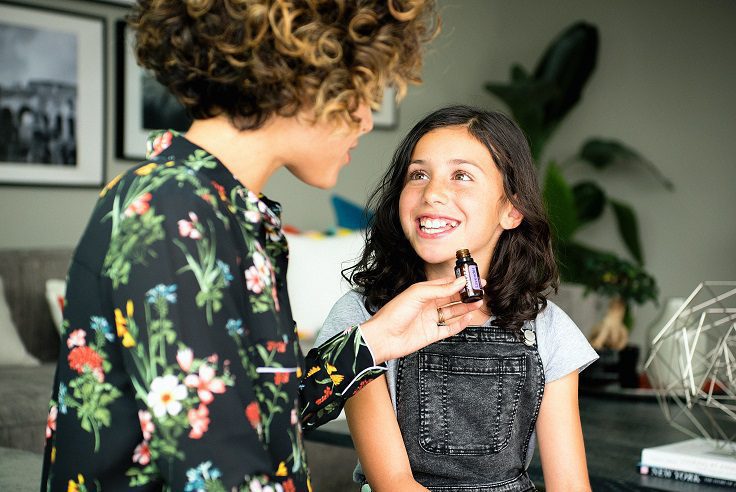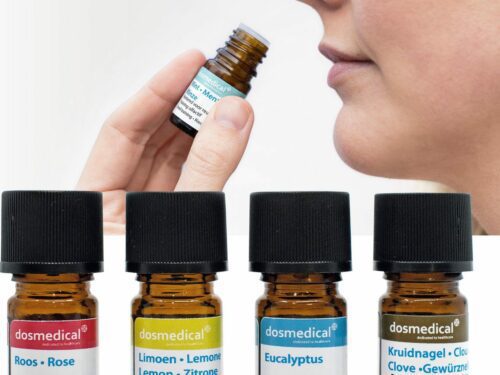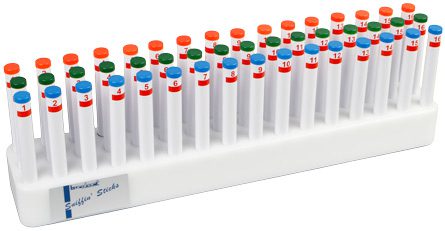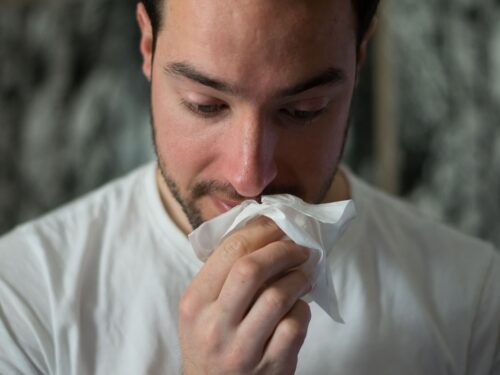
Loss of smell in children can lead to major consequences in eating patterns. As a parent, you therefore seek support and understanding with these problems. Especially when your child indicates that the food tastes terrible. For example, children may say that food tastes like sewage and that water tastes like rotten eggs. It is often difficult to imagine yourself in this situation if you have no experience with loss or deformation of smell and taste.
Disruption of sense of smell in children
 Parosmia is the medical term for experiencing disturbances in the sense of smell. Someone with parosmia can detect odors, but the odors are registered in a different way than normal. This can be in a negative way or a positive way. Perceiving existing odors as foul or unpleasant odors is called troposmia. Unpleasant odors sometimes appear in response to specific odors or, for some people, to all odors. It can range from mild to severe and can be incredibly debilitating for the person experiencing it. This may suddenly make your child seem ‘fussy’, but this is not a behavioral problem, it is a real physical experience.
Parosmia is the medical term for experiencing disturbances in the sense of smell. Someone with parosmia can detect odors, but the odors are registered in a different way than normal. This can be in a negative way or a positive way. Perceiving existing odors as foul or unpleasant odors is called troposmia. Unpleasant odors sometimes appear in response to specific odors or, for some people, to all odors. It can range from mild to severe and can be incredibly debilitating for the person experiencing it. This may suddenly make your child seem ‘fussy’, but this is not a behavioral problem, it is a real physical experience.Decreased sense of smell or total loss of smell
In many cases there is a reduced sense of smell, in which case we speak of hyposmia. This is a quantitative olfactory disorder and can occur in varying degrees. Reduced sense of smell can be caused by various causes such as viruses (such as coronaviruses), colds, allergies, smoking, but also certainly by old age. Because many children have also become infected with the Covid virus, we see that children also regularly have a reduced sense of smell.
If someone no longer smells at all, this is called anosmia. With complete anosmia, no odor is perceived anymore, this is the most serious form of smell loss. With selective anosmia, only certain odors are no longer perceived, which is of course also very annoying.
Loss of smell in children, how do you deal with it?
According to Professor Carl Philpot, when it comes to smell loss in children, it is very important to identify what the triggers are, for example cooking meat and garlic and the smell of fresh coffee, but these can differ from child to child. It’s important to encourage your child to try different foods with less strong flavors, such as pasta, bananas or mild cheese. To see what they can handle and what they can enjoy. If your child is bothered by odors in other products such as shampoos and conditioners, try to avoid these products or opt for odorless variants.
The consequences of loss of smell and taste can sometimes be severe. This can also lead to sad feelings in children. It is therefore important to keep talking to each other and, if necessary, to contact your GP or fellow sufferers. From our experience we know there are mulitple Facebook groups which you can join to talk about smell disorders and how to deal with them. It may help to talk with other parents and people who suffer from smell loss.
If you have any questions about supplements, vitamins or treatment of loss of smell and taste, it is best to contact your GP. If necessary, your GP can refer you to an ENT specialist. If your child experiences sad feelings or has problems with healthy eating due to loss of smell and taste, we advise you to contact your doctor.
How long can it take?
We often see that the sense of smell restores itself. This happens faster with one than with the other. It also depends on how the sense of smell is affected, in some cases the loss of smell will be permanent. In the case of a Coronavirus infection, the loss of smell is temporary in most cases, but about 5% (up to 20% in some studies) of affected people suffer from a reduced sense of smell for a long time. Most people recover completely within a few days, weeks or months. There remains a small group that suffers from the smell disorder for a longer period of time.
Testing the sense of smell
A special smell test has been developed with 12 everyday odors to test children’s sense of smell. We regularly supply this U-Sniff children’s smell test to (ENT) doctors all over the world. The U-Sniff smell test can be used to determine in a validated manner whether there is a normal, reduced or seriously disturbed sense of smell.
Smell training for children?
To speed up the recovery process, consider starting with smell training. If your child experiences loss of smell and/or taste for more than a month, smell training is recommended. It has been scientifically proven that smell training can help with smell loss. Just as the body is trained in physiotherapy, when you lose your sense of smell you train your nose and brain to properly perceive odors again. This is done by consciously smelling different scents.
There are three different smell training kits of essential oils to get different scents that alternate. It is important that the scents are very different so that your sense of smell is optimally stimulated. There are also smell training sets available with Sniffin’ Sticks (Smell Quartett). For smell training, it is important that your child smells a smell training kit of four scents twice a day for 12 to 24 weeks. It takes a few minutes a day and it has been scientifically proven that smell training can help with smell loss. If you would like to know more about smell training, read more on the next page: smell training









